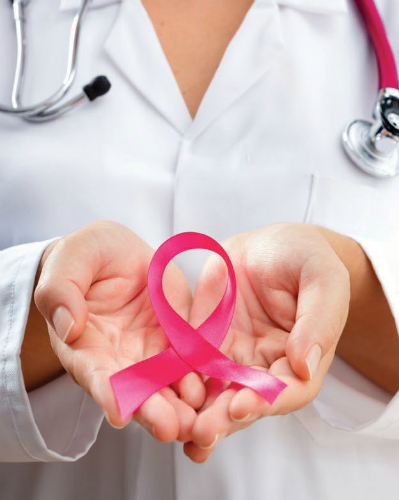What you need to know and how you can help
Thanks to earlier detection –through screening and increased awareness— and better treatments, a woman’s risk of dying of breast cancer dropped 38 percent between the late 1980s and 2014, translating into 297,300 fewer breast cancer deaths during that time.
However, there’s much more to be done. Breast cancer is still the second leading cause of cancer death in women. Only lung cancer kills more women each year. And there remains a large racial gap in mortality, with African-American women having 42 percent higher death rates compared to whites. The chance that a woman will die from breast cancer is about 1 in 37 (about 2.7 percent).
If you or someone you love is concerned about developing breast cancer, have been recently diagnosed, are going through treatment, or are trying to stay well after treatment, the American Cancer Society can help you find the answers you need.
The Facts
The American Cancer Society’s estimates for breast cancer in the United States for 2017 are:
• About 252,710 new cases of invasive breast cancer will be diagnosed in women.
• About 63,410 new cases of carcinoma in situ (CIS) will be diagnosed (CIS is non-invasive and is the earliest form of breast cancer).
• About 40,610 women will die from breast cancer.
• While black and white women get breast cancer at roughly the same rate, black women are more likely to die from it.
At this time, there are more than 3.1 million people with a history of breast cancer in the United States. (This includes women still being treated and those who have completed treatment.)
Risk Factors
• Limited but accumulating research indicates that smoking may slightly increase breast cancer risk, particularly long-term, heavy smoking and among women who start smoking before their first pregnancy.
• Obesity increases the risk of postmenopausal breast cancer. Risk is about 1.5 times higher in overweight women and about 2 times higher in obese women than in lean women.
• Growing evidence suggests that women who get regular physical activity have a 10%-25% lower risk of breast cancer compared to women who are inactive, with stronger evidence for postmenopausal than premenopausal women.
• Numerous studies have confirmed that alcohol consumption increases the risk of breast cancer in women by about 7%-10% for each one drink of alcohol consumed per day on average. Women who have 2-3 alcoholic drinks per day have a 20 percent higher risk of breast cancer compared to non-drinkers.
What You Can Do to Help
From investing in research, providing free rides to treatment, giving insurance advice and providing a free place to stay during chemotherapy, the American Cancer Society is attacking cancer from every angle.
Join ACS and help save lives from breast cancer: Fundraise and participate in one of more than 250 Making Strides events or participate virtually at makingstrideswalk.org.
Take action with The American Cancer Society’s nonprofit, nonpartisan advocacy affiliate, the American Cancer Society Cancer Action Network (ACS CAN) and help make fighting breast cancer a national priority at acscan.org/makingstrides.

